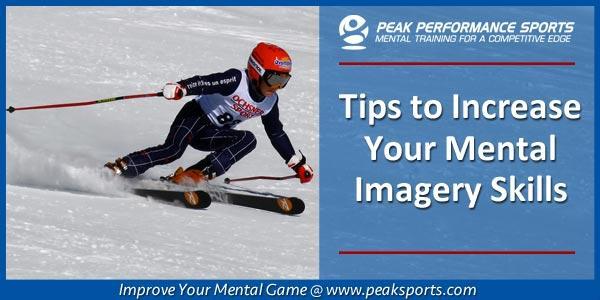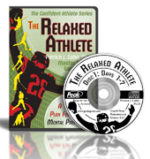
Mental Imagery And Improved Performance
Olympic-level athletes have benefited from imagery for decades.
Olympians, such as downhill skier Picabo Street, wrestler Dan Gabler, swimmer Michael Phelps and gymnast Gabby Douglass credit mental imagery for helping achieve their Olympic successes.
In fact, Olympic gymnastic gold medalist Shannon Miller stated that mental training is the difference-maker in sports.
“The physical aspect of the sport can only take you so far. The mental aspect has to kick in, especially when you’re talking about the best of the best,” said Miller.
“In the Olympic Games, everyone is talented. Everyone trains hard. Everyone does the work. What separates the gold medalists from the silver medalists is simply the mental game.”
While most Olympic athletes adopt some form of imagery in their training or pre-performance routine, the majority of non-Olympic athletes do not utilize mental imagery.
Athletes who do not imagine often ask, “Does imagery really work?”
Erin M. Shackell and Lionel G. Standing of Bishop’s University set out to answer that very question in their study, Mind Over Matter: Mental Training Increases Physical Strength (North American Journal of Psychology, 9, 189-200).
Shackell and Standing tested whether mental imagery alone can produce a gain in muscular strength. Shackell and Standing studied hip flexor strength of athletes to determine the difference between physical strength training and mental imagery training.
They compared two groups: a physical training group who only lifted weights and a mental training group who only imaged the act of lifting weights.
The results prove interesting for the benefits of imaging performance.
After two weeks, both the mental and the physical training groups improved their hip flex or lifting performance by substantial margins (23.7% for mental training only and 28.3% for physical training only).
How did the mental training group only improve their strength?
By not only “visualizing” themselves performing the lift, but also by feeling what it like to increase the weight lifted each imagery session by five pounds.
The key to successful imagery is “feeling” the task as you see yourself performing it.
Think of how vastly you could improve your performance by combining physical practice with mental training.
When you see Olympic athletes image their performance moments before they compete, you often see them physically mimicking the performance as they image.
By including the sense of feeling into your imagery, you can improve the athletic experience into your subconscious mind.
Try these tips to increase your imagery skills:
- Tip #1: Feel your performance – You should notice how it “feels” to perform certain skills or routines in practice. Fully experience how your body moves as you perform.
- Tip #2: Image with feeling – You should incorporate that “feel” of your body moving as you perform into your imagery sessions.
It may take some time to be comfortable with this type of imagery but the benefits are more than worth it.
Related Sports Psychology Articles
- How to Use Mental Imagery for Greater Success in Sports
- How Olympians Use Mental Imagery To Improve Success
- My Top Three Uses of Mental Imagery for Athletes
*Subscribe to The Sports Psychology Podcast on iTunes
*Subscribe to The Sports Psychology Podcast on Spotify
Download a free sports psychology report to improve your mental game!
Learn more about our one-on-one mental game coaching.
The Relaxed Athlete

The ability to relax and play your game under pressure is what separates the winner from the loser in any competition. Champion athletes train hard in practice, are motivated for the right reasons, and are able to raise their game in crunch-time with two minutes remaining in the game..
A relaxed and confident performance begins in the mind! When you are mentally prepared to compete, you can have an optimal level of intensity AND poise!
The Relaxed Athlete program is ideal for any athlete that wants to overcome pregame anxiety, worry, or excess tension and learn to perform with poise. It’s also ideal for any coach or parent who wants to teach athletes to perform with poise and relaxation in competition.
